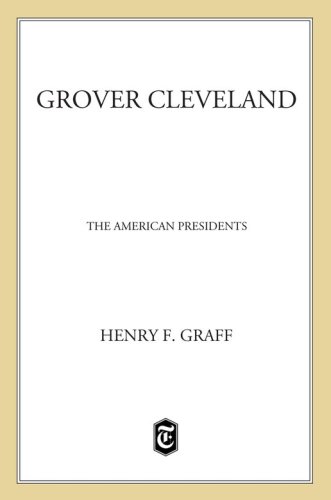
Grover Cleveland
The 22nd and 24th President, 1885-1889 and 1893-1897
فرمت کتاب
ebook
تاریخ انتشار
2002
نویسنده
Arthur M. Schlesinger, Jr.ناشر
Henry Holt and Co.شابک
9781429998000
کتاب های مرتبط
- اطلاعات
- نقد و بررسی
- دیدگاه کاربران
نقد و بررسی

July 1, 2002
In this brief, excellent volume written for Arthur Schlesinger's American Presidents series, Columbia professor emeritus Graff (The Tuesday Cabinet) picks up the often neglected Grover Cleveland, dusts him off and reminds us how substantial he was. After serving as mayor of Buffalo and governor of New York, Cleveland (1837–1908) was the first Democrat to be elected president after the Civil War. He forced America's railroad titans to return 81,000,000 western acres previously granted by the federal government and regulated them with the Interstate Commerce Act. Although defeated in the electoral college by Benjamin Harrison in 1888, Cleveland won the popular vote, which set the stage for his return to the presidency in 1892 in the midst of nationwide depression. As usual, Cleveland acted decisively. He repealed the inflationary Sherman Silver Purchase Act and, with the aid of Wall Street, maintained the Treasury's gold reserve. When Chicago railroad strikers violated an injunction against further disruption, Cleveland dispatched federal troops. Cleveland's no-nonsense treatment of the strikers stirred many Americans, as did the way he forced Great Britain to accept arbitration of a disputed boundary in Venezuela. But many of Cleveland's hard-hitting policies during the depression proved unpopular in the long term; in 1896, his party nominated William Jennings Bryan for the presidency. In clean, matter-of-fact prose, Graff sums up the plainspoken Cleveland as a man of action and uncompromising integrity—a man who, though publicly identified as the father of a bastard child, nevertheless restored dignity to the office of the president in the wake of several weak administrations. (Aug. 20)Forecast:Because Cleveland lacks the popular appeal of Teddy Roosevelt or James Madison (with bios already published in this series), this fine volume may be more for completists.

September 15, 2002
As part of the "American Presidents" series under the editorial direction of Arthur M. Schlesinger Jr., distinguished historian Graff (America: The Glorious Republic, to 1877) offers new insight into a President who is often overlooked. Best known as the only President to serve two nonconsecutive terms, Cleveland does indeed deserve Graff's fresh examination. The 1888 Presidential election was marked by one of the earliest and most virulent attacks on the personal behavior of a candidate when Cleveland was accused of fathering a child out of wedlock. But the candidate took full responsibility for the child (an act Graff refers to as "the gold standard" for such circumstances), and in the end the incident did not cause Cleveland to lose the election. Graff's examination of the 1888 election is one of the finest short reviews of that peculiar race available. Cleveland had a narrow view of the President's powers and did not exert the more expansive leadership that would characterize later Presidents. But he was an able administrator and pursued a clean-government agenda. This slim volume is a valuable addition to the literature on the Presidency and is a compelling argument for taking Cleveland seriously as a President. For political collections of public libraries.-Michael A. Genovese, Loyola Marymount Univ., Los Angeles
Copyright 2002 Library Journal, LLC Used with permission.

August 1, 2002
History professor Graff points out that whatever public remembrance exists for Grover Cleveland rests almost entirely on his unique role as the only president to serve two nonconsecutive terms in the White House. In this latest addition to the publisher's American Presidents series, the basics of Cleveland's life and career are presented with workable, even admirable, concision. Cleveland rose quickly through New York State politics, establishing himself early on as "a straight arrow." Political reform was in the air, and "Cleveland, the politician of integrity, manifestly was riding with the wind of change at his back." Notice of his honesty and integrity spread nationwide, and he was elected president in 1884. Defeated for reelection in 1888, Cleveland recovered the Oval Office in 1892, and even though his interpretation of the role of president generally fit into the late-nineteenth-century mold of rather passive leadership, he nonetheless earned the admiration of the American public during his two administrations.(Reprinted with permission of Booklist, copyright 2002, American Library Association.)

























دیدگاه کاربران